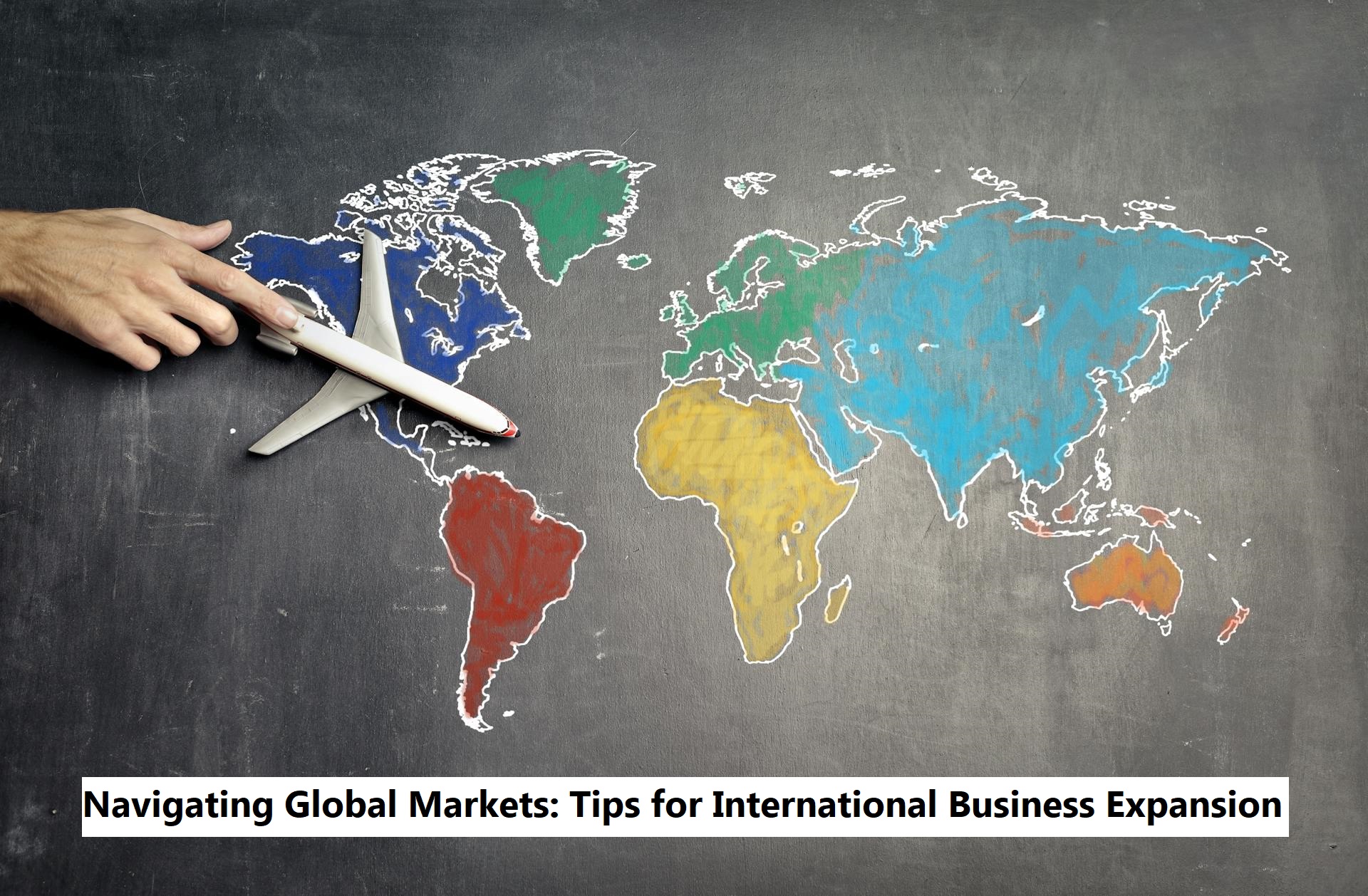Expanding a business internationally is a significant milestone that comes with both opportunities and challenges. As global markets become increasingly interconnected, businesses have the potential to reach new customers, diversify their revenue streams, and enhance their competitive advantage. However, the process of international expansion requires careful planning and strategic execution.
This blog post offers essential tips for navigating global markets and achieving successful international business expansion.
1. Conduct Comprehensive Market Research
Doing extensive market research is essential before entering a new market. This includes understanding the target market’s size, growth potential, customer preferences, and competitive landscape. Identify the key players in the market and analyze their strengths and weaknesses. Market research helps in making informed decisions and reduces the risk of costly mistakes.
Moving Services
For businesses in the moving services industry, market research can reveal the demand for relocation services in different regions. It can also highlight the preferences of customers, such as the need for specialized moving services for corporate relocations or international moves.
2. Develop a Localized Strategy
A one-size-fits-all approach does not work in international markets. Every market has a distinct regulatory, cultural, and economic landscape of its own. Therefore, it is essential to develop a localized strategy that considers these factors. This includes adapting your product or service offerings, marketing messages, and customer service practices to align with local preferences and expectations.
Localized Marketing Example: If you are expanding your moving services to a new country, tailor your marketing campaigns to reflect local customs and languages. Highlight how your services cater to the specific needs of the local population, whether it’s through specialized packing techniques or understanding local regulations for moving.
3. Understand Legal and Regulatory Requirements
Navigating the legal and regulatory landscape of a new market can be complex. It is important to understand the local laws and regulations related to business operations, taxation, employment, and intellectual property. Compliance with these regulations is essential to avoid legal issues and ensure smooth operations.
Tip: Consult with legal experts or local consultants who have in-depth knowledge of the regulatory environment in the target market. For example, if you are offering moving services, ensure that you comply with regulations related to transportation, customs, and insurance.
4. Build Strong Partnerships
Establishing strong partnerships with local businesses, suppliers, and distributors can facilitate a smoother entry into a new market. Local partners can provide valuable insights, resources, and support that can enhance your market entry strategy. They can also help navigate cultural differences and establish credibility with local customers.
Partnerships in Moving Services: Collaborate with local real estate agents, relocation specialists, and logistics companies to offer comprehensive moving solutions. These partnerships can help you provide a seamless experience for customers relocating to a new country.
5. Invest in Technology and Infrastructure
Investing in technology and infrastructure is crucial for supporting international operations. This includes robust IT systems, efficient supply chain management, and reliable communication tools. Technology can streamline operations, improve customer service, and enhance data security.
Technology in Moving Services: Implement advanced tracking systems to provide real-time updates to customers on the status of their move. Use digital platforms to manage bookings, payments, and customer communications efficiently.
Read: 7 Inspiring Leadership Quotes to Motivate Your Team
6. Focus on Customer Experience
Providing an exceptional customer experience is key to building a loyal customer base in a new market. Understand the expectations of local customers and tailor your services to meet their needs. Offer personalized solutions, responsive customer support, and clear communication.
Enhancing Customer Experience in Moving Services: Offer customized moving plans that cater to the specific requirements of customers, such as packing fragile items or handling large-scale corporate relocations. Provide dedicated customer support to address any concerns and ensure a smooth moving process.
7. Monitor and Adapt to Market Changes
International markets are dynamic and constantly evolving. It is important to monitor market trends, customer preferences, and competitive activities regularly. Stay agile and be prepared to adapt your strategies in response to market changes. By taking the initiative, you can keep one step ahead of the competition and take advantage of fresh chances.
Adapting in Moving Services: Keep an eye on trends such as the increasing demand for eco-friendly moving solutions or the rise of digital nomads. Adapt your services to cater to these emerging needs, such as offering sustainable packing materials or flexible moving options for remote workers.
8. Leverage Digital Marketing
One effective strategy for reaching a worldwide audience is digital marketing. Utilize social media, search engine optimization (SEO), content marketing, and online advertising to promote your brand in new markets. Tailor your digital marketing efforts to resonate with local audiences and drive engagement.
Digital Marketing for Moving Services: Create informative content that addresses common moving challenges and offers practical tips. Use SEO strategies to ensure your website ranks high in search results for relevant keywords, such as “moving services” and “international relocation.” Engage with potential customers on social media platforms by sharing success stories and customer testimonials.
9. Plan for Financial Management
Expanding internationally requires significant financial investment. Plan for the costs associated with market research, legal compliance, infrastructure, marketing, and talent acquisition. Ensure you have a solid financial plan in place to manage these expenses and achieve sustainable growth.
Financial Planning in Moving Services: Budget for the costs of establishing operations in new markets, including transportation, storage facilities, and marketing campaigns. To keep your business profitable, keep a close eye on your financial performance and make necessary adjustments to your strategy.
Conclusion
Navigating global markets and expanding your business internationally is a rewarding journey that requires careful planning, adaptability, and strategic execution. By conducting comprehensive market research, developing localized strategies, understanding legal requirements, building strong partnerships, and focusing on customer experience, you can successfully enter new markets and achieve sustainable growth. Embrace the opportunities that global expansion offers and leverage your strengths to make a positive impact in the international business landscape.
Author’s Bio:
Mark Smith is a qualified content writer with experience in writing on a variety of subjects. He has written a lot of content on Moving Companies, Commercial Movers services as well.



